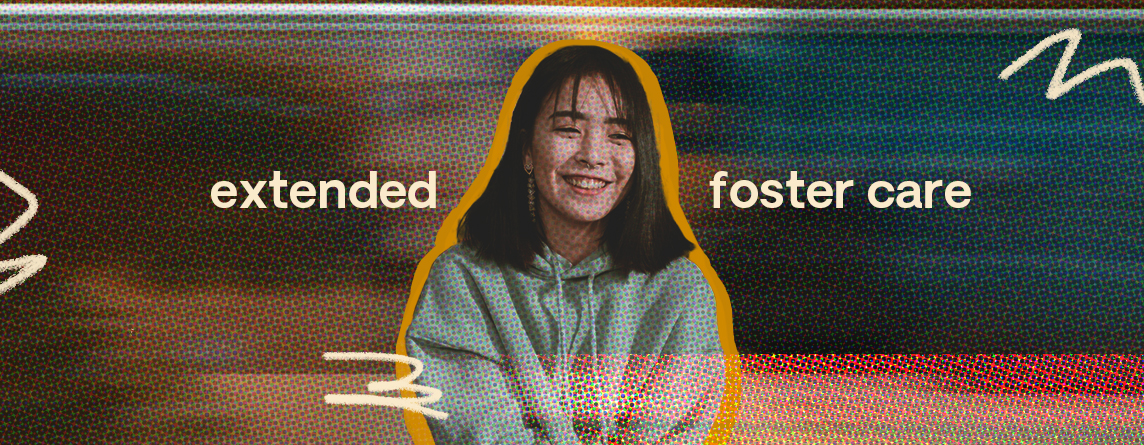Extended Foster Care Explained
In some cases, young adults aging out of foster care qualify for extended time. Extended foster care allows a youth who would otherwise age out of the system to remain in state custody beyond age 18. Laws and requirements vary by state and change frequently, but almost every state provides a version of it. All extended foster care programs aim to help former foster youth establish a stable, independent life. We break down how the program works and how you can help support these young adults.
What is Extended Foster Care
Few young adults are truly ready for independence at the age of 18. The following years often involve furthering their education, entering the workforce, moving out on their own, and figuring out who they want to be. Most young adults do this with the close support of family, friends, mentors, and educators. Yet, for youth in foster care without a family or support system, aging out brings negative outcomes:
- 81% of young men are incarcerated
- 71% of young women become pregnant before age 21
- 41% experience homelessness within 6 months
- 97% immediately enter chronic poverty
Even more sobering, half of the children born to this vulnerable population will also enter foster care.
Extended foster care aims to change the narrative. In this program, young adults between the transitional ages of 18 and 21 remain in state custody. This allows them to keep many of the benefits of foster care but with more freedom. The program looks different from state to state, but generally, young adults retain a support system, live in foster or transitional housing, and further their education.
What are the Requirements
Requirements for extended foster care vary between states. A young adult must apply to the program and appear before a judge to determine their eligibility. In the majority of states, those who wish to join the program must meet at least one of the following:
- Enrolled in secondary school
- Enrolled in postsecondary school or vocational training
- Working over a certain number of hours per week
- Unable to attend school or work due to a medical condition
A judge periodically reviews a young adult’s eligibility to ensure the requirements continue to be met.
Does Extended Foster Care Work
By all measures, extended foster care results in much better outcomes than emancipating from foster care at age 18 without support. To name just a few:
- College enrollment increases by 5-12%
- Total income increases by $2,300 to $3,200
- Risk of food insecurity decreases by 21%
- Risk of homelessness decreases by 19% per each year in extended foster care
- Risk of their children entering foster care decreases by 50%
In other words, young adults in extended foster care gain life-changing support and skills to set them up for a healthy future. This, in turn, helps keep their children out of foster care. By breaking the generational cycle, foster care placements become less and less common.
Based on these findings, it’s clear that part of ending the child welfare crisis in America requires supporting foster care alumni. By helping them stand on their own, we stop the cycle of foster care from repeating.
All of this helps end the child welfare crisis in America, which is crucial to protecting our nation’s kids and minimizing negative outcomes. Your support helps us and our network of partners move the needle in child welfare. We invite you to join the mission by making a donation. And as always, thank you!
